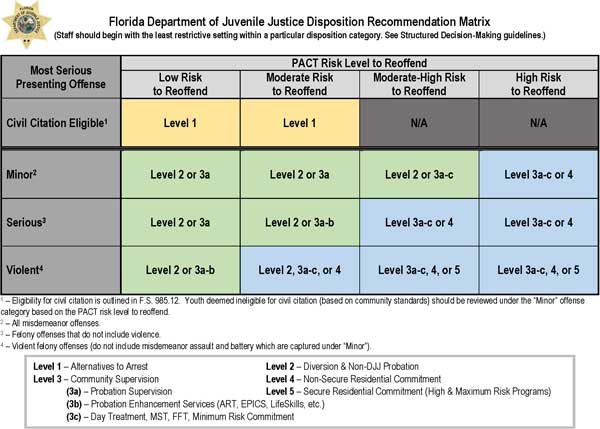Titusville City Council Candidate Jo Lynn Nelson Talks About Juvenile Crime
By Jo Lynn Nelson // July 18, 2016
worked as a prosecutor for 35 years

There are many people in the community asking about juvenile crime. The common questions are why does it seems that juvenile defendants are not punished, and why are juveniles direct filed or transferred to the adult system. The answer is complicated and requires some understanding of the juvenile system.
Our system of dealing with juveniles who commit crimes is purely statutory and began developing in the 1970’s. in a large part, understanding the system requires an understanding of the Detention Risk Assessment Instrument, the PACT or risk the reoffend and the Sentencing Matrix.
The Detention Risk Assessment Instrument and the Sentencing Matrix developed by the Department of Juvenile Justice. The PACT was developed independently but the numerical values assigned to it seem to have been assigned by the Department. As you can imagine, by relying on solely on a numerical system leads to some unintended results.
When a child is arrested, a decision to place him in the Juvenile Detention Center is based on the Detention Risk Assessment Instrument. This assigns points based on the most serious crime committed anc the prior record. A child who fails to appear cannot be held in detention unless it is their second failure to appear in court and then they can only be held for 24 hours.
If a child has absconded from probation, commitment or conditional release if there is a warrant from the Probation Officer. If a child scores 21 points, the Court can hold them for 21 days. Within that 21 days, the State must begin the trial of that case.
ABOVE VIDEO: Jo Lynn Nelson is candidate for Titusville City Council seat 5. She worked as a prosecutor for 35 years and served as the Juvenile Division Chief from 2004 to 2015 when she retired.
If a child scores between 7 and 11 points they qualify for home detention, the court has the option of placing the child on an ankle monitor. There are problems with the monitors. In 2012 a police dog was shot in West Palm Beach when the child, on an ankle monitor, burglarized the Troopers home.
As of a year ago, the local police officers were not given access to that information. The information that a child had violated home detention was given to the probation officer, who was then supposed to make contact with the child. Generally, the probation officers do not report violations to law enforcement.
Unfortunately, there are few sanctions for the child who violates home detention. When the child is picked up by law enforcement, the child was released back to the home, brought to court the next day to be sanctioned by the court.
The Court could sentence a child to five days in secure detention for the 1st cffense and 15 days for the second offense. However, currently, the juveniles are not being sentenced to secure detention for violations. The child cannot serve in either secure detention or home detention for more than 21 days.
If a child is detained, is found guilty, or enters a plea to a serious charge, a probation officer will administer a Positive Achievement Change Tool (PACT) assessment. The idea is to determine the risk of a child to reoffend.
That risk, which is low, moderate or high is then plugged into a matrix to determine the appropriate sentence. Unfortunately, the instrument does not appear to give any weight to prior bad behavior. Therefore a child who commits a sex offense scores as a low risk to reoffend despite having three or four prior offenses which were not prosecuted.
Those offenses did not occur here. The prior offenses did not appear to have any impact even though they had happened within the last year to year and a half. It also does not seem to give any weight to current behavior. So a child who is charged with an arson of an occupied residence is a moderate risk to reoffender, despite telling the probation officer that it was his intent to go back to the residence and kill the occupants.
After a child is found guilty or enters a plea of guilty, the Court will generally order a report done by the Department. The Department will recommend a sentence to the court. The Florida Supreme Court has said that the recommendation is binding on the Judge unless, after a hearing, the Judge can finds factors that were not considered by the Department in making its recommendation to the Court.

As you can see, if a child is a low risk to reoffend but commits a violent felony, his sentencing range would be Diversion or non-DJJ probation or probation. In 2013, a child, who I believe was 17 years of age, committed a home invasion robbery and murdered two people. He was a low risk to reoffend. One of my counterparts asked the Secretary of Juvenile Justice at the time, about this result.
We did not get an answer from her. One of the options that the prosecutors do have is to direct file a case, or transfer the case to the adult system. The statutes allow us to transfer a serious case when the child is 14 or 15. Any child who is 16 or 17 can have their case transferred to the adult system.
There is generally a discussion of the possible penalties in each court, any priors that the child has, the facts of the case and whether or not a gun was used. In the juvenile system, the child is committed to a low risk, moderate risk, high risk or maximum risk program. The programs last generally 3 months to three years. Each program is different. The Court can order a specific risk program but not a specific program within that category.
As a prosecutor, I have a problem with this type of system. We seem to be ignoring the real needs of the juveniles, and of the victims, and we have striped the Courts of the power to hear the facts and make real decisions.
Many of the programs were closed in around 2010. Prosecutors were telling me that juveniles were lingering in detention centers for months waiting to go into a program. So I suspect that part of this system was implemented to save money. However, we are doing a disservice to the people of this State.
ABOUT THE AUTHOR
Jo Lynn Nelson is a life long resident of Titusville and graduated from the University of Florida with a Bachelor of Arts degree, and a law degree from Stetson University. She worked as a prosecutor for 35 years and served as the Juvenile Division Chief from 2004 to 2015 when she retired. During that time, the number of cases dropped from over 6,000 a year, to less than 2,000. Nelson is a candidate for Titusville City Council seat 5.
CLICK HERE FOR BREVARD COUNTY NEWS













